Table of Content
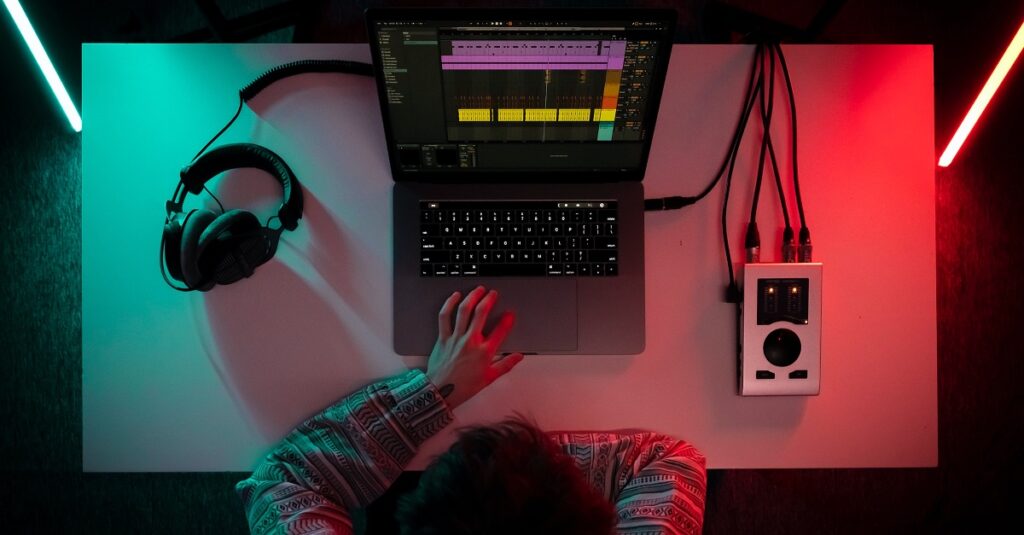
This article explores the realm of Digital Audio Workstations (DAWs), focusing on the best free options available in 2024. From beginners to seasoned musicians, finding the right DAW can significantly impact the music-making process. Let’s delve into the list of the top 14 free DAWs and discover their features and suitability for various music production needs.
BandLab

BandLab, a cloud-based FREE DAW, offers powerful tools and seamless collaboration for Windows, macOS, and even mobile users. Its easy-to-use interface and extensive feature set make it perfect for both beginners and experienced producers. However, its reliance on internet connectivity can be a limitation for some users.
Pros:
- Easy to use
- Powerful collaboration tools
- Available for Windows, macOS, and mobile
- Extensive feature set
- Cloud-based, allowing access from anywhere
Cons:
- Requires internet connectivity for full functionality
Audacity
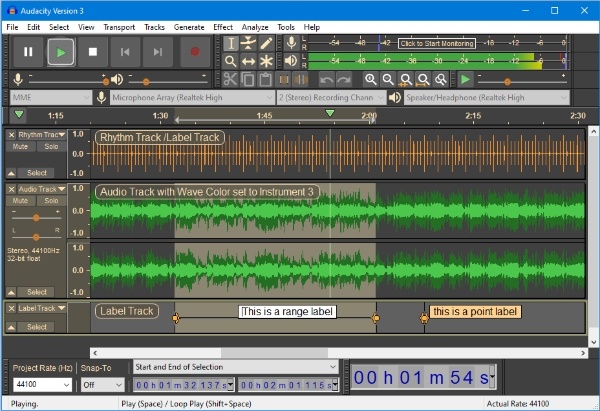
Audacity, an open-source FREE DAW, offers a user-friendly interface and versatile features for Windows, macOS, and Linux users. Its multitrack editor and built-in effects processor make it ideal for both beginners and experienced producers. However, it lacks MIDI sequencing capabilities.
Pros:
- Easy to use
- Multitrack editor
- Built-in effects processor
- Available for Windows, macOS, and Linux
Cons:
- Does not function as a MIDI sequencer
Waveform Free Daw
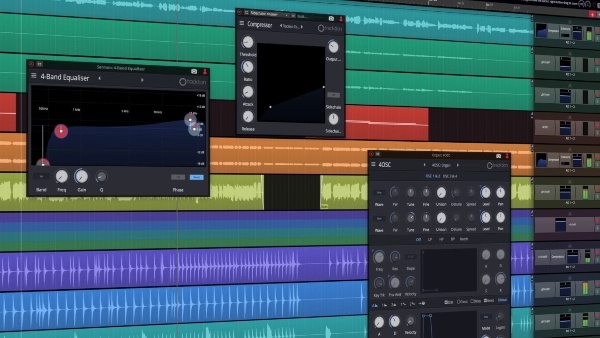
Waveform Free boasts a fully-featured FREE DAW with an elegant interface, supporting unlimited tracks and plugins for Windows, Mac, and Linux. While it offers MIDI and ReWire support, its interface may pose a challenge for traditional DAW users.
Pros:
- Elegant and easy-to-use
- Fully featured with unlimited tracks or plugins
- Supports MIDI and ReWire
Cons:
- Interface may be difficult for traditional DAW users
Ohm Studio
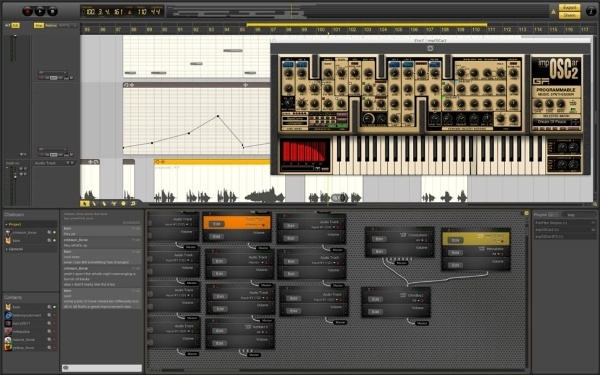
Ohm Studio, a collaborative DAW, offers professional-grade music production tools and virtual instruments. While lacking a built-in MIDI editor, its focus on collaboration and absence of limitations make it a compelling choice.
Pros:
- Fully featured with no limitations
- Designed for collaboration
- Wide range of virtual instruments and effects
Cons:
- Does not have a built-in MIDI editor
- Not well-suited for complicated production structures
Cakewalk by BandLab
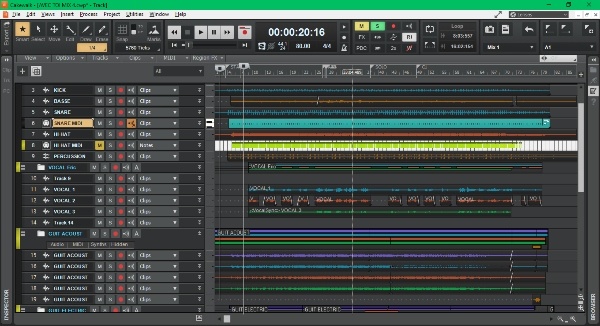
Cakewalk by BandLab excels in music creation with its user-friendly interface, robust feature set, and constant updates. Although some advanced features are exclusive to paid versions, its free version remains a powerhouse for music producers.
Pros:
- User-friendly interface
- Variety of plugins and effects
- Powerful sequencer
- Constant updates with new features
Cons:
- Some features limited to paid versions
Reaper
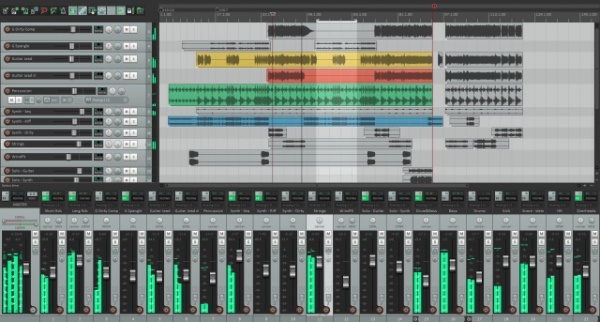
Reaper stands out with its versatility and simplicity, offering a comprehensive environment for multitrack recording, MIDI editing, and mixing. While lacking built-in plugins, its clean interface and frequent updates make it a favorite among users.
Pros:
- Very versatile
- Clean and simple interface
- Supports various audio production tasks
- MIDI CC Envelopes feature
Cons:
- Limited complementary plugins
What is the best DAW in 2024?
The answer depends on individual preferences and requirements. Each DAW offers unique features and capabilities, making it essential to consider factors such as workflow, compatibility, and specific production needs.
What is the best free DAW for music production?
While there isn’t a definitive answer, several free DAWs, including Audacity, Waveform Free, and Cakewalk by BandLab, stand out for their features and user-friendly interfaces. Ultimately, the best free DAW is the one that aligns with your workflow and helps you achieve your musical goals.
Which DAW is best for music production?
For music production, DAWs like Reaper, Studio One 5 Prime, and Ableton Live Lite offer robust features, versatile tools, and intuitive interfaces. However, the choice ultimately depends on individual preferences and specific production requirements.
Which DAW is best for songwriting?
DAWs with comprehensive MIDI editing capabilities, virtual instruments, and easy-to-use interfaces are ideal for songwriting. Options like Garageband, Pro Tools First, and Cubase LE provide excellent tools for songwriters to capture their ideas and turn them into polished compositions.
Ardour
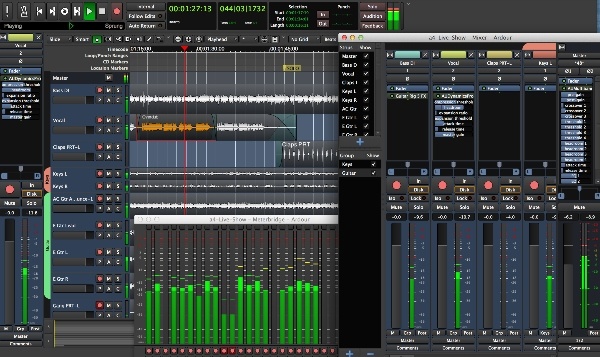
Ardour, available for Linux, macOS, and Windows, is a powerful digital audio workstation designed for professional use. Led by musicians, coders, and recording engineers worldwide, Ardour offers a clean, user-friendly interface with extensive features. Its robust mixer, built-in MIDI editor, and support for various audio formats and plugins make it a favorite among professionals.
Pros:
- Powerful mixer for precise control
- Built-in MIDI editor for comprehensive editing
- Supports a wide range of audio formats
- Open-source and collaborative development
Cons:
- Might have a steep learning curve for beginners
- Advanced features may be overwhelming for some users
Garageband
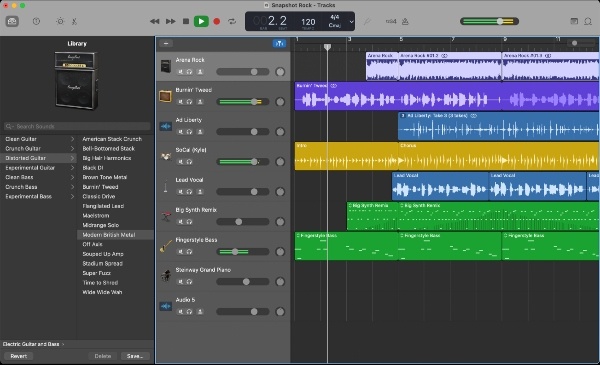
Garageband, developed by Apple, is a popular DAW available exclusively for macOS and iOS devices. Despite its accessibility to novice musicians, Garageband offers a comprehensive set of features, including virtual instruments, Audio Units plugins, and a user-friendly interface. While primarily known for its ease of use, Garageband is capable of producing professional-quality music across various genres.
Pros:
- Versatile interface with modern aesthetics
- Includes a variety of software instruments and effects
- Seamless integration with Apple ecosystem
Cons:
- Limited availability to macOS and iOS users
- May lack advanced features compared to other DAWs
Pro Tools First
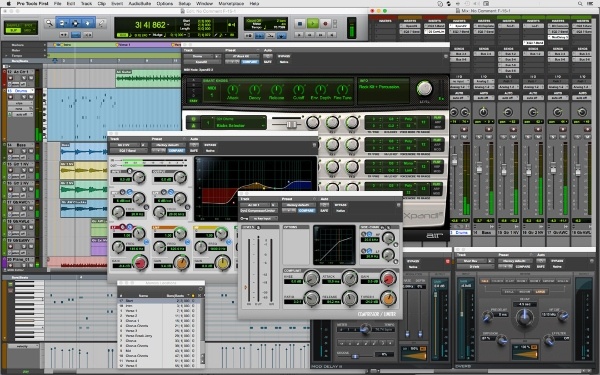
Pro Tools First, a free version of the industry-standard Pro Tools DAW, is available for Windows and macOS users. While offering a limited feature set compared to the full version, Pro Tools First remains a powerful tool for music creation with its intuitive interface and essential functionalities. Its compatibility with professional studios and frequent updates make it a valuable asset for aspiring musicians and seasoned producers alike.
Pros:
- Industry-standard DAW with a wide variety of features
- Offers essential tools for music creation
- Seamless integration with professional studio setups
Cons:
- Limited track and plugin capabilities compared to the full version
- Some features may require additional purchases or subscriptions
Cubase LE
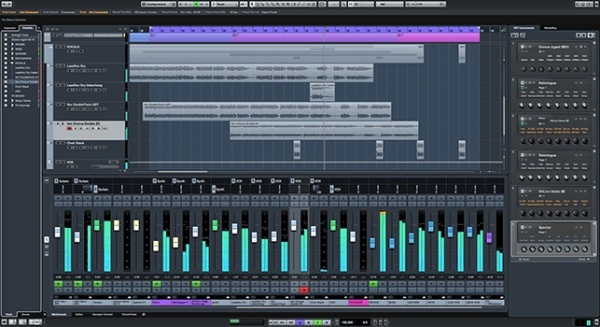
Cubase LE, a light version of the renowned Cubase DAW by Steinberg, caters to beginner and hobbyist users with its simplified interface and essential features. Despite its limitations, Cubase LE provides a solid foundation for music production, offering built-in audio editing tools, MIDI capabilities, and support for VST plugins. It serves as an excellent starting point for users looking to explore the world of music creation without overwhelming complexity.
Pros:
- Powerful digital audio workstation suitable for beginners
- Includes essential audio editing and MIDI tools
- Supports a wide range of VST plugins for customization
Cons:
- Limited track and instrument capabilities compared to the full version
- Requires purchasing the full version for access to advanced features
Studio One 5 Prime
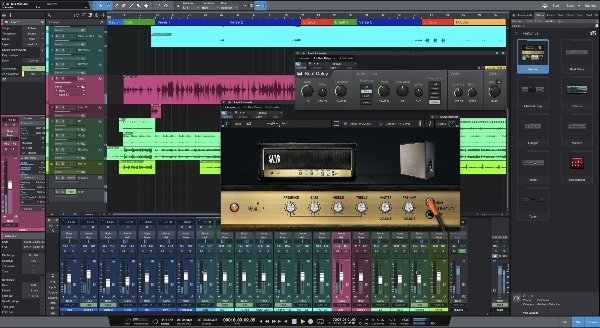
Studio One 5 Prime, the free version of Studio One by Presonus, provides a comprehensive yet accessible platform for music production. With a user-friendly interface and a selection of virtual instruments, effects, and loops, Studio One 5 Prime offers a solid foundation for creative endeavors. While lacking some features present in the full version, it remains a versatile and powerful tool for beginners and professionals alike.
Pros:
- Powerful DAW with intuitive interface
- Includes a selection of virtual instruments, effects, and loops
- Suitable for both beginners and experienced users
Cons:
- Missing some advanced features found in the full version
- Limited compatibility with VST plugins
Certainly! Let’s delve deeper into each DAW:
MPC Beats
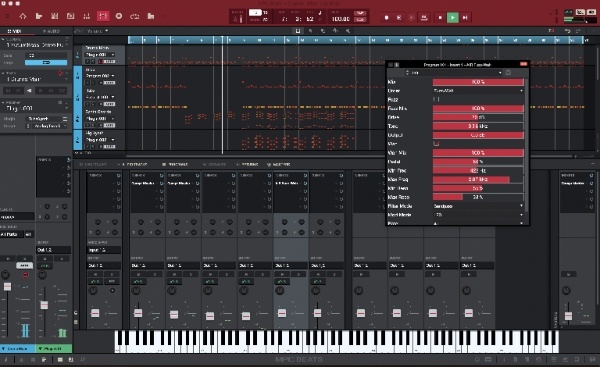
MPC Beats, crafted by Akai, presents a free DAW solution that, while a scaled-back version of Akai’s flagship MPC software, packs a punch in music creation. Featuring a built-in sampler, drum machine, and an array of virtual instruments, MPC Beats offers a solid foundation for producing professional-grade music. While primarily designed for use with Akai’s MPK mini MIDI controller, it remains compatible with other MIDI controllers, providing flexibility for users.
Pros:
- Powerful DAW, offered for free
- Includes a sampler, drum machine, and virtual instruments
Cons:
- Some in-app purchases available
- Compatible only with Windows and macOS
Ableton Live Lite
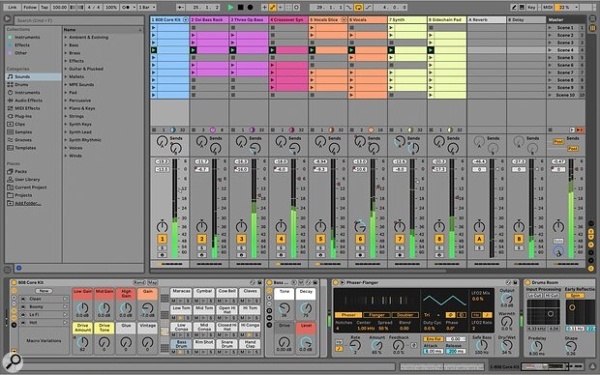
Ableton Live Lite serves as a streamlined version of the renowned Ableton Live DAW, ideal for newcomers to music production. Packed with essential features for creating quality music, Live Lite offers a wide range of instruments, effects, and loops, along with a robust drum machine and MIDI editor. While lacking certain functionalities like ReWire support and advanced MIDI mapping, it provides a glimpse into the intuitive workflow and capabilities of its full-fledged counterpart.
Pros:
- Popular workflow among music producers
- Offers a variety of effects and instruments
Cons:
- No ReWire support
- Limited MIDI mapping capabilities
Podium Free
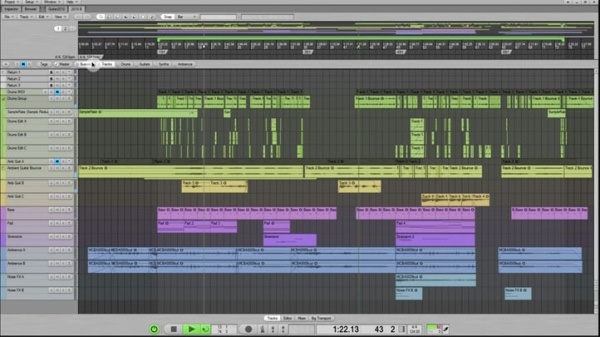
Podium Free, tailored for Windows users, introduces a straightforward yet effective DAW experience. Despite its dated appearance, Podium Free boasts modern functionality, featuring a DAW-style timeline and mixing board, alongside full VST support and an unlimited number of tracks. However, its reliance on single-core CPU processing and exclusive compatibility with Windows may pose limitations for some users.
Pros:
- User-friendly interface
- Supports VST plugins
- Unlimited number of tracks
Cons:
- Utilizes only one CPU core
- Compatible solely with Windows operating systems
Serato Studio
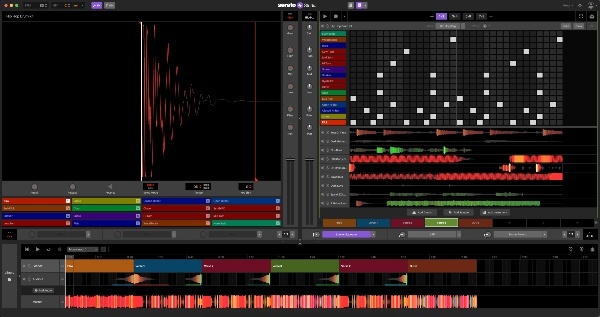
Serato Studio, developed by Serato, emerges as a versatile digital audio workstation tailored for DJs, producers, and musicians alike. With its intuitive interface and drag-and-drop workflow, Serato Studio facilitates seamless music creation, featuring essential tools such as a sampler, drum machine, and virtual instruments. While lacking in VST or AU support and offering a less potent sampler compared to other DAWs, its user-friendly design and comprehensive capabilities make it an attractive option for music composition.
Pros:
- Ideal for beatmakers
- Streamlined workflow for sample-based music production
- Effortless MIDI editing
Cons:
- Limited sampler functionality compared to other DAWs
- Absence of VST or AU support
Conclusion
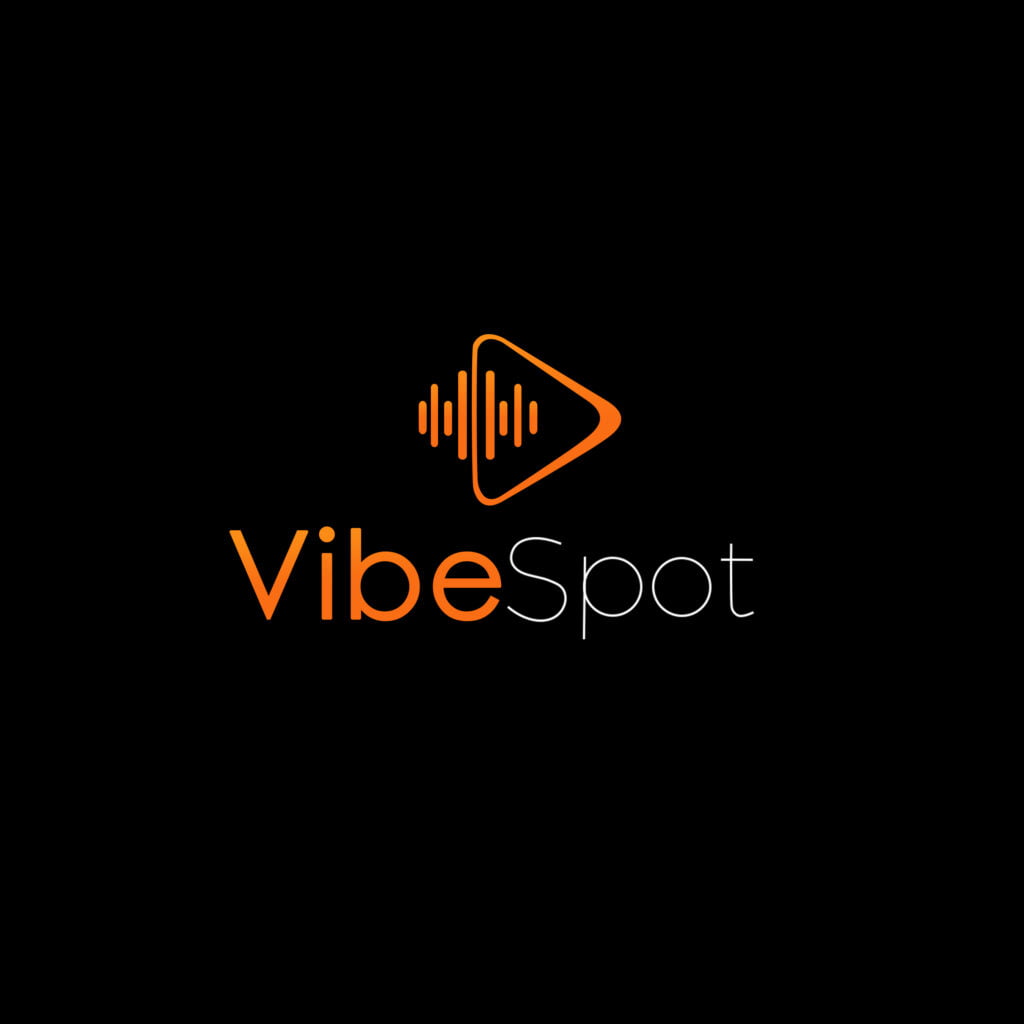
In conclusion, the landscape of digital audio workstations (DAWs) in 2024 presents a plethora of options for music producers, ranging from free offerings to premium software suites. From Audacity’s versatility to Waveform Free’s elegant interface, and from Ohm Studio’s collaborative features to the professional-grade capabilities of Ardour, there’s a DAW to suit every need and preference.
Whether you’re an aspiring musician, a seasoned producer, or a hobbyist exploring the world of music production, the best DAW for you ultimately depends on your specific requirements, workflow preferences, and budget constraints. While each DAW offers its own set of features, strengths, and limitations, they all share a common goal: to empower creators to bring their musical visions to life.
In this dynamic landscape, the best DAW is the one that inspires creativity, enhances productivity, and facilitates seamless workflow integration. So, whether you’re crafting chart-topping hits or experimenting with new sounds, explore the diverse array of DAWs available and find the one that resonates with your musical journey.
With the right tools at your disposal, the possibilities are endless. Happy music-making!





No comment